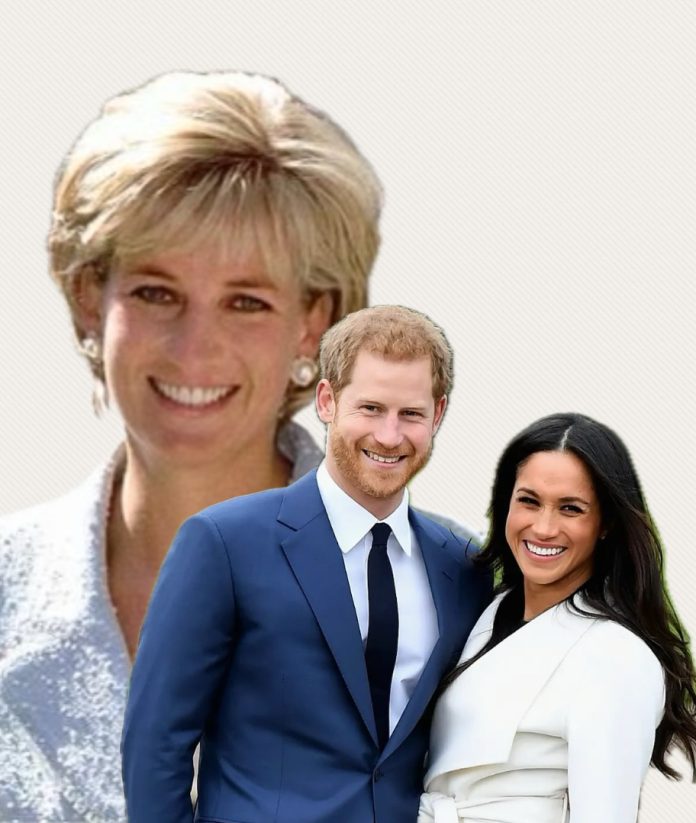Princess Diana, renowned for her grace, compassion, and humanitarian endeavours, captivated the world’s imagination. However, her life was also marked by relentless media scrutiny, particularly from the paparazzi. The events leading to her untimely death in 1997 have sparked intense debate regarding the culpability of Paparazzi in the tragedy. This article delves into the multifaceted dynamics between Princess Diana, the paparazzi, and the media, exploring the extent to which media intrusion contributed to her demise.
Paparazzi, a ubiquitous presence in celebrity culture, is driven by the pursuit of sensational images to satiate the voracious appetite of tabloids and gossip columns. Armed with cameras and fuelled by the promise of lucrative exclusives, they engage in relentless pursuit of celebrities, often resorting to intrusive and unethical tactics. The paparazzi culture embodies a symbiotic relationship between supply and demand, with consumers craving intimate glimpses into the lives of the rich and famous, fuelling their insatiable hunger for celebrity gossip.
Princess Diana’s life was a tumultuous juxtaposition of adoration and intrusion. From the moment of her engagement to Prince Charles, Diana became a magnet for media attention. Her grace, charm, and charitable endeavors endeared her to the public, yet she struggled to navigate the relentless scrutiny of the press. Diana’s relationship with the media was fraught with contradictions: she courted publicity to raise awareness for her charitable causes, yet she yearned for privacy and autonomy in her personal life. Despite her efforts to establish boundaries, Diana found herself relentlessly pursued by paparazzi, their lenses capturing her most vulnerable moments.
The tragic events of August 31, 1997, unfolded against the backdrop of a relentless paparazzi pursuit through the streets of Paris. Princess Diana and her companion, Dodi Fayed, sought refuge from the intrusive glare of the media, yet found themselves besieged by a swarm of paparazzi intent on capturing lucrative images. Desperate to evade their pursuers, their driver, Henri Paul, engaged in reckless maneuvers, culminating in a tragic car crash in the Pont de l’Alma tunnel. The collision claimed the lives of Diana, Dodi Fayed, and Henri Paul, leaving the world in mourning and sparking a global outcry against media intrusion.
The events surrounding Princess Diana’s death reignited longstanding debates regarding media ethics and accountability. While journalists uphold the principles of freedom of the press, the pursuit of sensational stories often comes at the expense of individual privacy and safety. The relentless pursuit of celebrities by paparazzi blurs the boundaries between legitimate news gathering and intrusive voyeurism, raising questions about the moral responsibility of media organisations, their consumers and the need for stricter regulations to safeguard individuals from harassment and exploitation.
In the aftermath of Diana’s death, calls for reform and regulation of paparazzi practices reverberated worldwide. Several countries have enacted legislation to curb intrusive media tactics, imposing fines and penalties for breaches of privacy laws. However, the efficacy of such measures remains contested, as the fundamental tension between media freedom and individual rights persists. Achieving a balance between the public’s right to information and the protection of individual privacy remains a formidable challenge for legislators and media watchdogs alike.
Princess Diana’s tragic demise serves as a sobering reminder of the human cost of media sensationalism. Beyond the headlines and sensationalism lies a profound lesson in empathy, integrity, and respect for individual dignity. As society grapples with the complexities of media culture, Diana’s legacy endures as a beacon for advocates of responsible reporting and ethical journalism. Her untimely death sparked a global conversation about the need to uphold the principles of integrity, compassion, and accountability in media practices, to ensure that tragedies like hers are never repeated.
Twenty Seven Years On
For those who consider that the papparazi were somehow responsible for the death of Diana, Princess of Wales, one must now look to the present and ask what has changed. Whether the papparazi and the billionaire corporate media are any better now is a matter of conjecture, but what has been added to make celebrity life even more intrusive and dangerous is social media. Social media has its positives but much of it on certain topics is beyond toxic. It comprises of very nasty people making very nasty comments based on very little knowledge or understanding of the impact.
Take this one:
‘Nice of that ginger bloke to fly in from California to see another bloke he’s not even related to.’
Some might snigger at this, while others would be upset. The response is a determinant of the type of person one is. There are two issues with this comment that stand out.
- It focuses on the colour of the hair, with a snide attempt at being derogatory towards people with ginger hair.
- It claims to know about a person’s parentage without any evidence.
Where does this animosity come from? Where is it framed?
The answer is the billionaire corporate media, which many swallow without any attempt to evaluate. If it feeds their preexisting prejudices (also framed by the media…) then that appears to be enough to form a belief. A belief that may have absolutely no factual substance.
Thus, we have hate and dislike for Harry and Meghan for no other reason than having been programmed by the billionaire corporate media to create and maintain the walking dead across the public.
Death appears to come to many long before their hearts stop beating.
To ensure balance on the brainwashing walking dead front:
KEEP US ALIVE and join us in helping to bring reality and decency back by SUBSCRIBING to our Youtube channel: https://www.youtube.com/channel/UCQ1Ll1ylCg8U19AhNl-NoTg AND SUPPORTING US where you can: Award Winning Independent Citizen Media Needs Your Help. PLEASE SUPPORT US FOR JUST £2 A MONTH https://dorseteye.com/donate/







